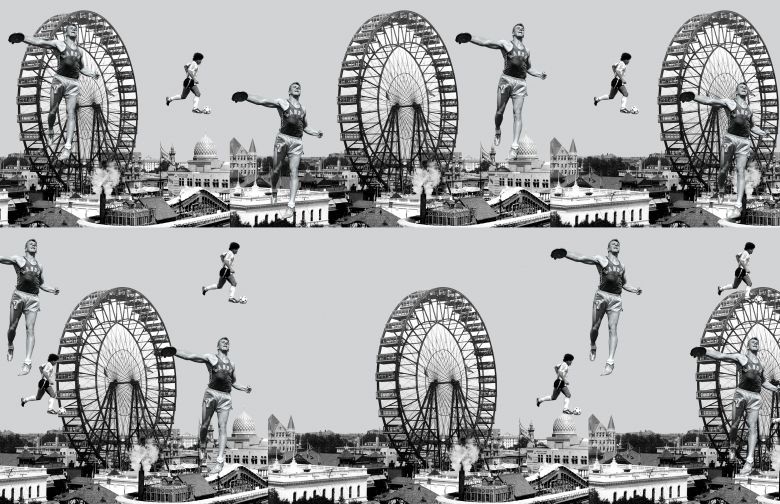Thursday Cinema
Salt Galata
April 7 – June 23, 2016

SALT Galata, Auditorium
This year’s Thursday Cinema focuses on the impacts of international mega-events, including world fairs, world cups and olympic games, on the urban fabric. A total of 24 films, documentaries and features, will be screened in the Auditorium at SALT Galata between April-June and September-December.
The “Great Exhibition” in London in 1851 was the first official international ‘world fair’ and its prominent displays of ‘national’ advancements set a precedent for future events that included developments in agriculture and industry, and later in the arts, for the world to discover. Such fairs were organized thematically and the principal ideal of showcasing progress was elaborated over time to highlight innovative fields of transportation, communication, energy and space exploration, as well as urgencies around peace, the environment and food. Even though the mythological history of the olympics dates back to ancient times, the first modern games were played in the spring of 1896 in Athens. The games have continued to be perceived as great spectacles, where success over all other international contestants was revered highly by participating nations. Gaining autonomy from the olympics in 1930, The Fédération Internationale de Football Association (FIFA) World Cup is now one of the most internationally revered events having scaled up considerably with the growing universal passion for football.
The glamorous success of world fairs in history depended on the promise of a brighter future. The universality of the olympics has fed off the desire of the idea of a competitive camaraderie between nations. The sweeping excitement of the world cup has stemmed from the power of rivalry. There is no doubt that the longevity of hundreds of years of these organizations is in line with various political and economic motivations. However, for the first time in the 21st century dissident voices are amplified. In the hosting of these events cities are modified fast and sometimes iniquitously with the sudden flow of capital. Concerned discussions focus on planning decisions that raze demographically fragile, fringing neighborhoods and the economic harm caused to the societies that end up paying for massive investments in the hope of securing extreme profits.
Examples include: The activist group No Boston Olympics who campaigned successfully to revoke the city’s bid from the 2024 Summer Olympics. The 2018 Winter Olympics bid, won by PyeongChang, saw the failure of Munich as the city’s candidacy was not endorsed by The German Green Party. The inauguration of the EXPO 2015 “Feeding the Planet, Energy for Life” in Milan was protested by street demonstrations with up to 30,000 people. International press continues to report on the fatalities occurring on the construction site of Qatar’s 2022 World Cup, where hundreds of workers have already lost their lives. The selection of Thursday Cinema explores the ups, downs and dramas that surround these international events, as well as the historic background of these giant organizations and their impacts in popular culture and society.
Thursday Cinema is supported by Garanti Mortgage. Particular screenings are realized in collaboration with British Council, Goethe-Institut Istanbul and Institut français de Turquie à Istanbul.
PROGRAM
April 7
Matthew Silva, Modern Ruin: A World’s Fair Pavilion, 2015
April 14
Paul Weiland, Sixty Six, 2006
April 21
Fatima Geza Abdollahyan, Kick in Iran, 2009
April 28
Katsuhiro Ôtomo, Suchîmubôi [Steamboy], 2004
May 5
Victor Buhler, The Beautiful Game, 2013
May 12
Paul Kelly, What Have You Done Today Mervyn Day, 2005
Paul Kelly, Seven Summers, 2012
May 19
Raynal Pellicer, Paris Belle Époque, 2004
May 26
Charles Walters, Walk, Don’t Run, 1966
June 2
Scott Huegerich and Bob Miano, The World’s Greatest Fair, 2004
June 9
Debs Gardner-Paterson, Africa United, 2010
June 16
Miao Wang, Beijing Taxi, 2010
June 23
Metin Erksan, Suçlular Aramızda [The Guilty Are Among Us], 1964
Supported by

In collaboration with



